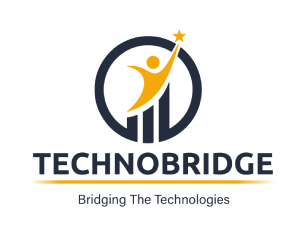Overview of Chemistry and BSc Chemistry
Chemistry is a core branch of science that explores the composition, structure, and properties of matter. It impacts nearly every aspect of life, from the air we breathe to the medications we rely on. BSc Chemistry is an undergraduate program that provides a solid foundation in organic, inorganic, and physical chemistry. Students gain knowledge about various chemical reactions, analytical methods, and the behavior of substances, setting the stage for advanced learning or industry-oriented roles.
Scope of Chemistry in B.Sc
A BSc in Chemistry opens doors to a wide range of higher education opportunities and career paths in various industries. Graduates can pursue job-oriented courses or specialize in advanced fields of chemistry. The knowledge and skills gained in BSc Chemistry allow individuals to work in research laboratories, pharmaceutical companies, chemical manufacturing, healthcare sectors, and more.
Top Job-Oriented Courses After BSc Chemistry [2026]
Here are the best courses after BSc Chemistry offered by TechnoBridge:
- Medical Coding Course
- Clinical Data Management Course
- Clinical Research Course
- Medical Writing Course
- Medical Device Management
1. Medical Coding Course
Medical Coding Course equips students with essential knowledge of medical terminology, coding systems, and healthcare regulations. Medical Coding is a 3-month course that includes training on Anatomy & Physiology, ICD-10, CPT, and HCPCS coding guidelines. The course aims to prepare students for certification exams like CPC and offers 100% placement support in top healthcare organizations. Medical Coding is always best career option for BSc Chemistry graduates because there is not necessary to have a complete life science.
2. Clinical Data Management Course
Clinical Data Management Course covers the basics of CDM, software tools, and data quality checks essential for clinical research projects. It is a 2.5 month course with a detailed curriculum that includes hands-on experience in data entry, database designing, and clinical trial data analysis.
3. Clinical Research Course
The Clinical Research Course is a comprehensive training program designed for science graduates, focusing on the key areas of clinical trials, research methodologies, regulatory guidelines, and ethics. This course offers 100% placement assistance and provides an in-depth understanding of clinical study designs, drug development process, data management, and Good Clinical Practices (GCP) & etc. With a duration of 3-6 months, students gain industry-relevant skills and hands-on exposure to clinical research projects.
4. Medical Writing Course
The Medical Writing Course focuses on writing scientific documents, clinical study reports, and regulatory submissions. It’s a 90 days program that helps students build writing skills and provides 100% placement assistance in pharmaceutical and CRO companies.
5. Medical Device Management
Medical Device Management is a 3 to 6-month course focusing on the regulations, quality standards, and safety requirements for medical devices. Students are trained to ensure compliance with global and local regulatory bodies. Medical Device Management Course opens up opportunities to work in the growing medical device industry as Quality Assurance Specialists, Regulatory Affairs Managers, and Product Managers.
MSc Courses after BSc Chemistry
- MSc Chemistry
- MSc Biochemistry
- MSc Microbiology
- MSc Pharmaceutical Chemistry
- MSc Industrial Chemistry
- MSc Environmental Chemistry
PG Diploma Courses after BSc Chemistry
- PG Diploma in Analytical Chemistry
- PG Diploma in Drug Regulatory Affairs
- PG Diploma in Quality Control and Assurance
- PG Diploma in Environmental Chemistry
- PG Diploma in Clinical Research
Doctoral Courses after BSc Chemistry
- PhD in Organic Chemistry
- PhD in Inorganic Chemistry
- PhD in Physical Chemistry
- PhD in Analytical Chemistry
- PhD in Pharmaceutical Chemistry
Skills Required for a Career in Chemistry
To build a successful career in Chemistry, individuals should develop skills such as analytical thinking, attention to detail, problem-solving abilities, laboratory expertise, and proficiency in scientific research. Additionally, communication skills and adaptability to new technologies and software are essential in research and industry roles.
Career Options After BSc Chemistry
BSc Chemistry graduates can explore diverse career opportunities, including:
- Chemist:Working in laboratories to analyze chemical compounds and materials.
- Quality Control Analyst: Ensuring the quality and safety of products in industries like pharmaceuticals and chemicals.
- Clinical Research Associate: Overseeing clinical trials and managing research projects.
- Medical Coder: Assigning standard codes to healthcare diagnoses and procedures.
- Research Scientist: Conducting research in chemical and pharmaceutical industries.
- Chemical Analyst: Testing and analyzing samples in environmental or manufacturing industries.
- Medical Writer: Writing scientific documents and reports for clinical trials.
Some other career options for BSc Chemistry:
- Lab Assistant
- Scientific Data Entry Specialist
- Research & Development Manager
- Product Officer
- Agricultural Chemist
- Pharma Assistant
- Production Chemist
- Production Chemist
- Radiologist
- Lab Chemist
- Chemical Engineering Associate
- Biomedical Chemist
- Quality Controller
- Medical Technologist
Salaries after BSc Chemistry in India
The salary after BSc Chemistry depends on the role and industry. Entry-level positions such as chemists and analysts offer salaries ranging from ₹2.5 to ₹4.5 LPA. Mid-level roles like Clinical Research Associates and Regulatory Affairs Executives can earn ₹4 to ₹6 LPA. With experience and specialization, professionals in fields like Pharmacovigilance, Medical Coding, and Research can earn up to ₹8 LPA or more.
Frequently Asked Questions
1. What is the best course to do after BSc Chemistry?
Some of the best job-oriented courses include Clinical Research, Medical Coding, Pharmacovigilance, and Regulatory Affairs, offered by TechnoBridge Systems Pvt Ltd.
2. What are the career prospects after completing a BSc in Chemistry?
Graduates can pursue roles like Chemist, Quality Control Analyst, Clinical Research Associate, Regulatory Affairs Executive, Medical Coder, and more.
3. Is Medical Coding a good career option after BSc Chemistry?
Yes, Medical Coding is a highly in-demand career with attractive salary packages and job stability in the healthcare industry.
